
Dog Tongue Color Chart What Color Should Your Dog’s Tongue Be
A normal dog tongue should typically be pink, indicating good circulation and oxygenation. Pale or white tongues may suggest anemia, while a bluish tint could signal respiratory or cardiovascular issues. A yellowish hue may indicate liver problems. Dark red or purple tongues could signify heatstroke or circulatory problems.

Why Is My Dog's Tongue White? (Hint Call The Vet!) PawsGeek
2. Blue or Purple Tongue. There are a number of reasons why your dog's tongue could turn unexpectedly blue or purple. Let's examine the potential causes of this tongue discoloration before you start to worry. Initially, it can mean that your pet's oxygen saturation is dropping.
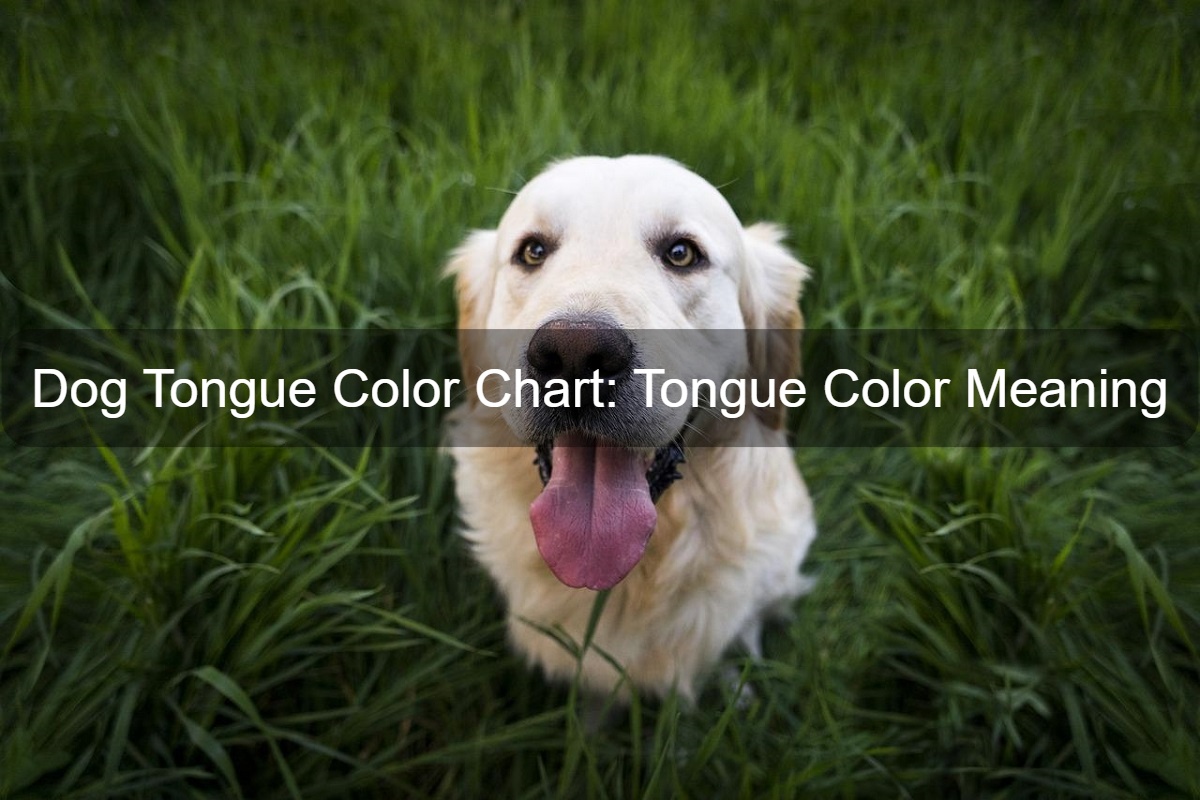
Dog Tongue Color Chart Tongue Color Meaning
Dog Tongue Color Chart. Color of Tongue : What It Could Indicate: Pink: This is a completely healthy tongue color: Yellow: A sign of jaundice which could single issues with the liver including liver disease. Red: Sore and inflammed from injury, bacterial infection or an indication of hypertension, over-heating or stomatitis.

Signs of Heat Exhaustion In Dogs
A dog's tongue is usually warm. If your dog's tongue feels extra warm when they lick you, it's likely because the normal body temperature for dogs is 101.0 to 102.5°F (38.3 to 39.2°C). If your dog is running a fever, their tongue may feel even warmer, but don't count on this as an accurate assessment of their body temperature. Taking.

Tongue Chart Tongue health, Medical facts, Health guide
The tongue assists your dog with chewing and swallowing. A dog's Tongue Color Chart helps to regulate the body temperature as well. As air passes back and forth when a dog pants, it cools down the body. The cooling of the body is also enhanced as saliva evaporates from the mouth of your dog.
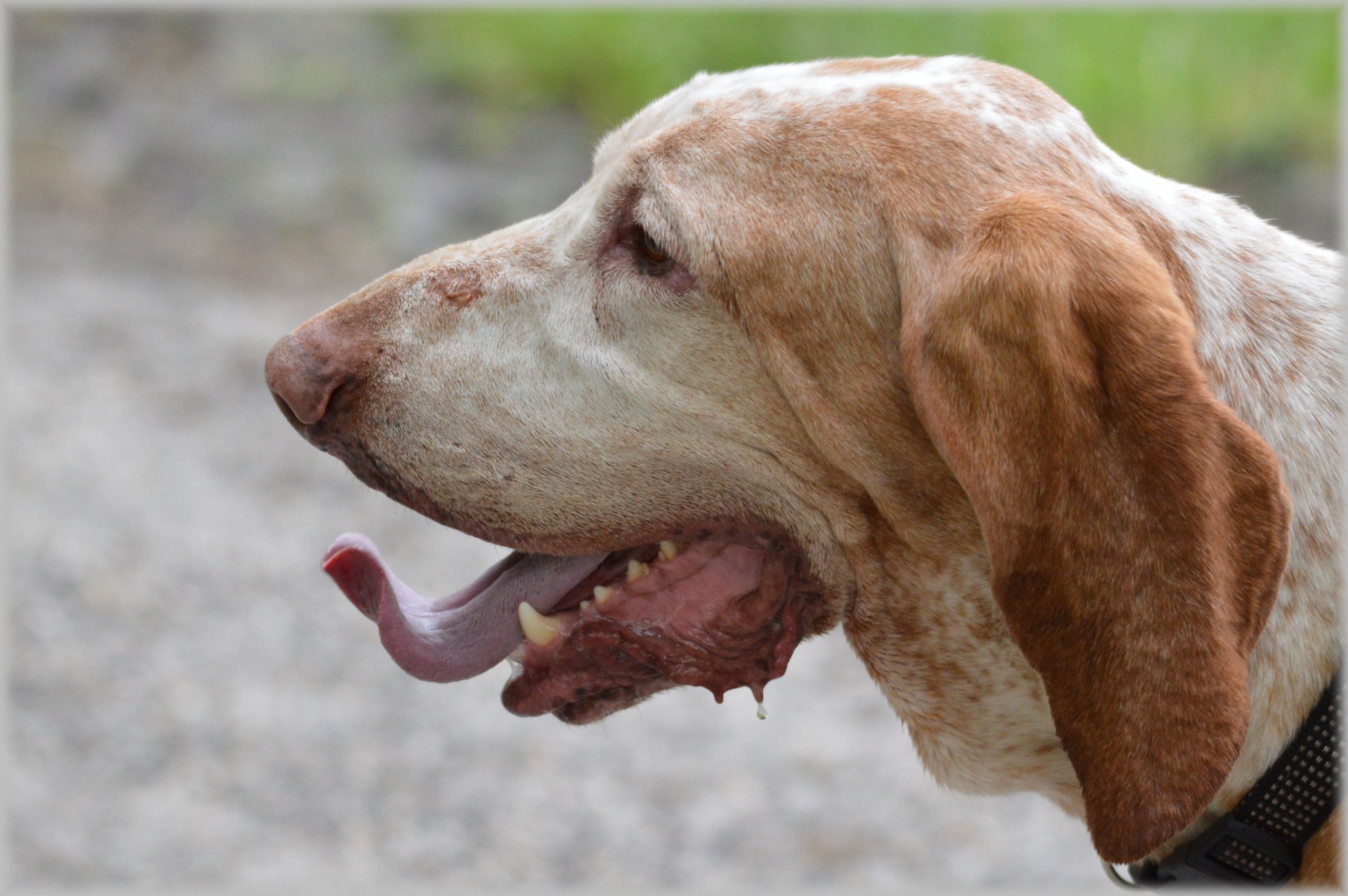
Capnocytophaga Back in the News Worms & Germs Blog
3. Yellow Tongue. The yellow discoloration of a dog's tongue might be a sign that it has pancreatitis, liver disease, or gallbladder problems. Regardless, dog owners should take note of the common symptoms of these health concerns, including jaundice or the yellowing of the tongue and skin, loss of appetite, and nausea.
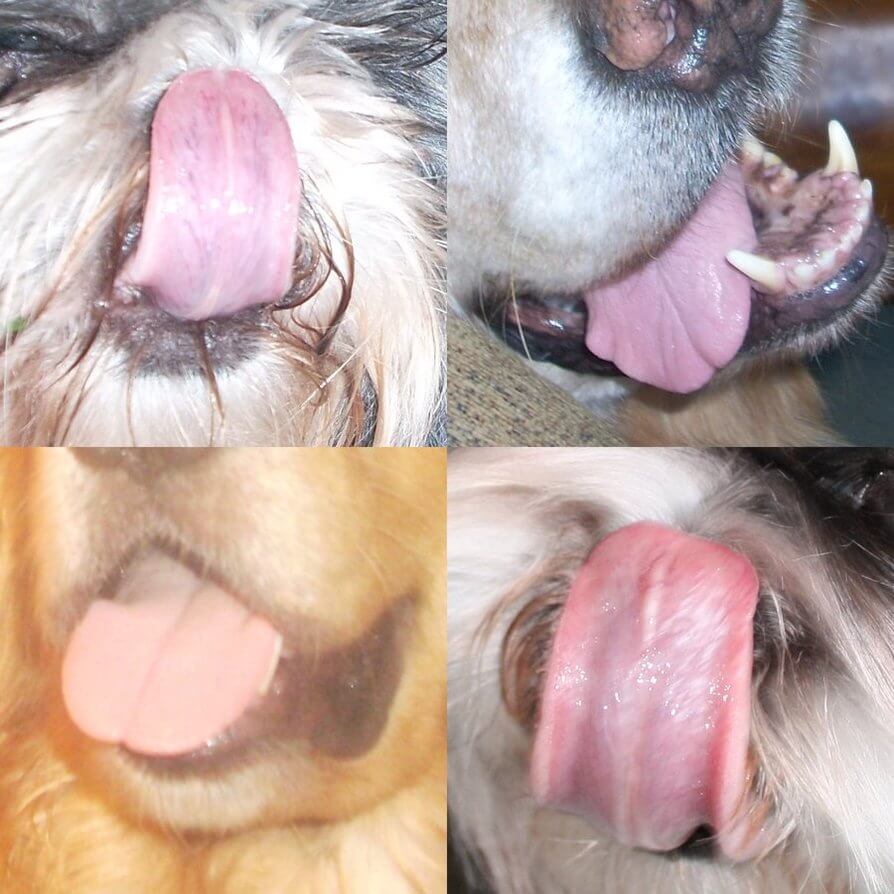
Dog Tongues 49 Violet Tongue Breeds √ 12 Stunning Facts about Dog
A paler-than-normal dog tongue could indicate an underlying health issue. In most cases, a pale or white tongue shows that the number of red blood cells your pup has is reduced somehow.. Dog Tongue Color Chart. Color: Possible Causes: Pink: Standard, healthy shade of a dog's tongue: Dark Pink: Overheating or dehydration: Blue/Purple: If.

Dog Tongue Color Chart What Color Should Your Dog’s Tongue Be
Here is the dog tongue color chart and what it signifies -. Pink - Sign of a perfectly healthy dog. Red - Sign of diseases like diabetes, kidney issues, bacteria, melanoma, etc. Yellow - Sign of liver or gall bladder problems. It can be a sign of jaundice too.
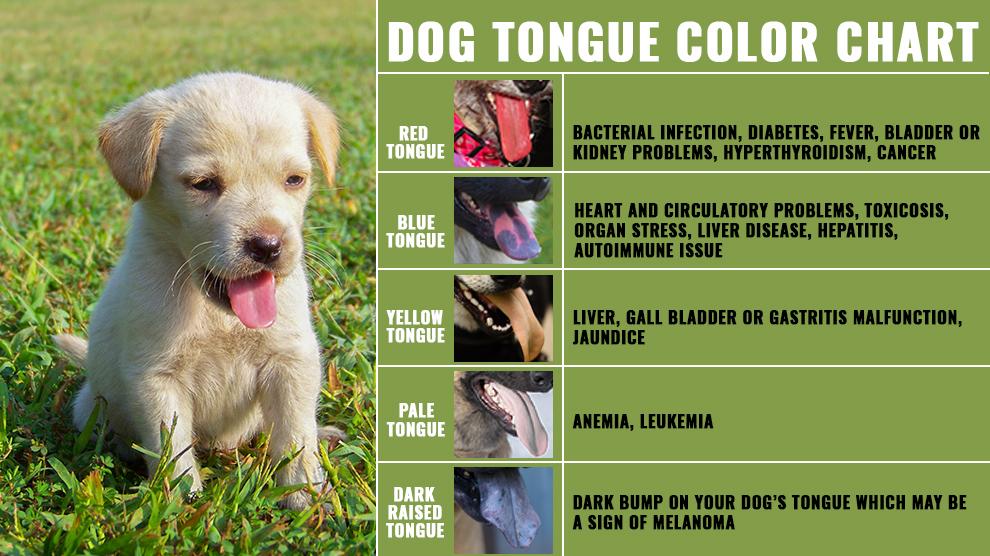
Dog Tongue 10 Must Know Facts About The Dog's Health Checker Petmoo
Dog tongue color chart As we state in the introduction, a dog's tongue color can say a lot about a dog's overall health. This is because they all have mucus membranes which are a good indicator of the state of the dog's blood circulation. If the dog doesn't naturally have a purple tongue or blue tongue, then it should be some shade of pink with.

All you can learn about a dog's health by their tongue color chart
Have you ever wondered what your furry friend's tongue color says about their health? Turns out, it's not just a quirky trait - the color of a dog's tongue can actually be a powerful indicator of their overall well-being. From a rosy pink to a pale white or even a surprising blue, these hues can reveal secrets about your pup's health that you might not have known.

Dog Tongue Color Chart What Color Should Your Dog’s Tongue Be
Each animal species has a normal tongue color, and in dogs, this can vary by breed, such as the black tongue seen in the Chow Chow. The normal equine tongue color is pale pink, while carnivores have a darker pink color. Young and healthy animals can provide good examples of normal tongue colors. Just as in veterinary school, it is best to learn.
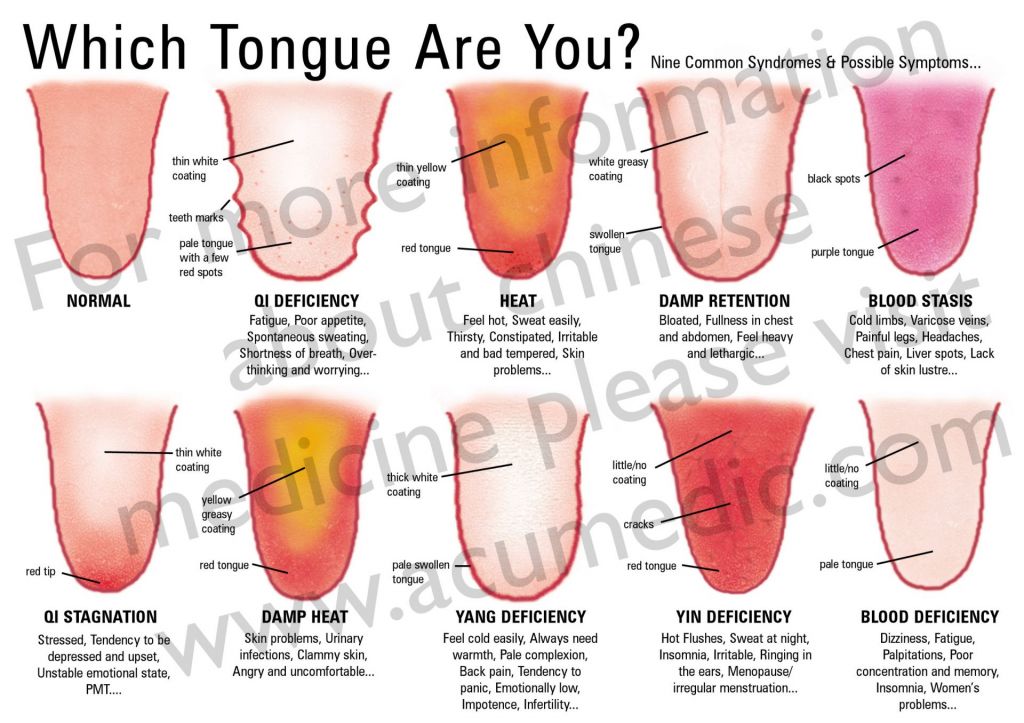
Basic Tongue Diagnosis Chart AcuMedic Clinic
For most breeds, a pink tongue indicates good health while purple, red, yellow, black, and/or a pale tongue is a sign of an underlying/undetected health issue. Medical conditions like Glossitis, Stomatitis, Cancer, oral lacerations can all cause tongue discoloration in dogs. Last Updated on: December 26, 2022.

Dog Tongue Color Chart What Is A Color Of A Healthy Dog?
Blue is the most concerning tongue color for your pooch. Although a dog like Chow Chow is born with a blue tongue. But a blue tongue in other dogs indicates life-threatening conditions. It is, in most cases, a sign of severe poisoning. The cyanosis (blueness) of the tongue is due to hypoxia, or the lack of oxygen.

TongueChart — Ancient Practice Modern Healthcare. Alternative
A red tongue in dogs could indicate heatstroke, kidney problems, or bacterial infections. A purple tongue might be related to heart disease, while a white tongue could be a sign of anemia or leukemia. So, a dog tongue color chart is very important and every dog parent should be well informed about this.

Why Is My Dogs Tongue Pale
1 "Your Dog's Tongue Color is A Telltale Sign of Its Health," The Upper Pawside. Coverage underwritten and issued by Independence American Insurance Company ("IAIC"), a Delaware insurance company, headquartered at 11333 N Scottsdale Rd, Ste 160, Scottsdale, AZ 85254 or Metropolitan General Insurance Company ("MetGen"), a Rhode Island insurance company, headquartered at 700 Quaker.
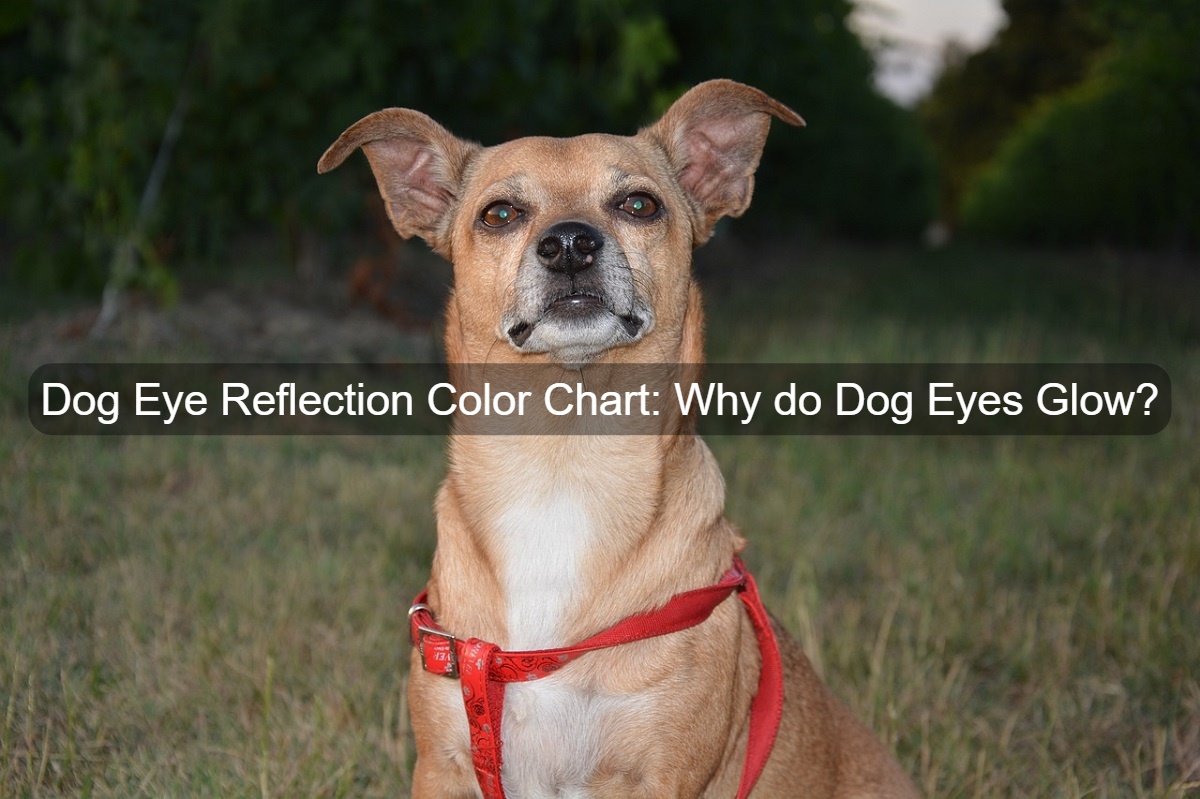
Dog Tongue Color Chart Tongue Color Meaning
If your dog's tongue is normally pink, a sudden color change may indicate a medical emergency. A dark red, purple, or blue-tinged tongue could be a sign of heatstroke, toxin exposure, heart/lung disease, or electrical shock. A pale pink-to-white tongue could be a sign of severe anemia due to immune mediated disease, or internal bleeding.